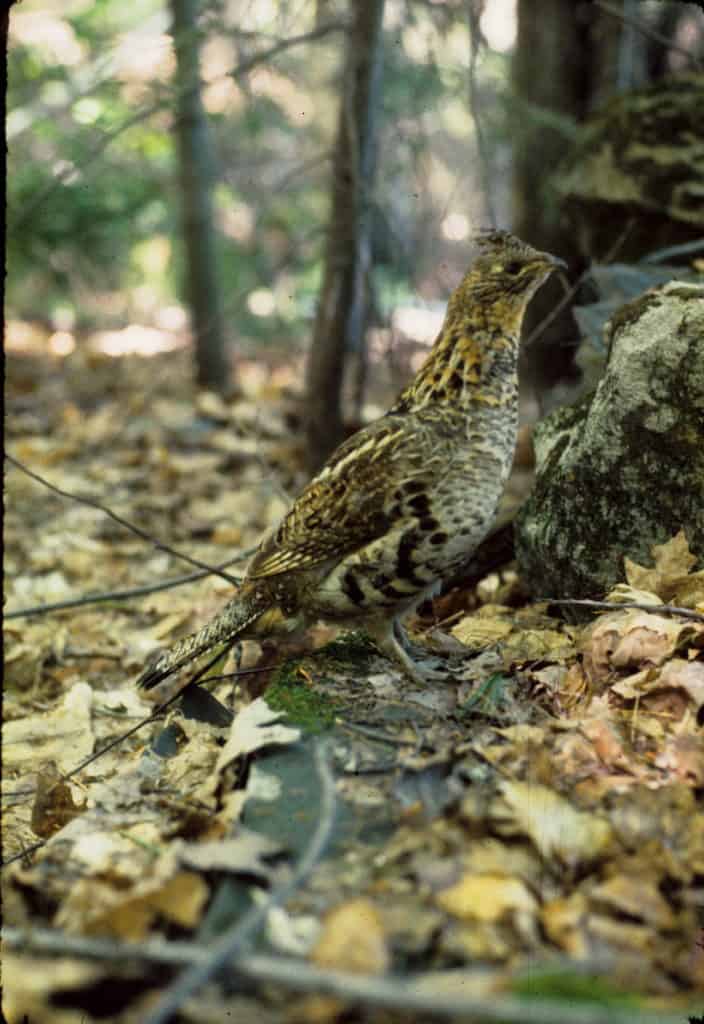
The ruffed grouse is an iconic game bird of Vermont that is widely recognized and enjoyed by hunters and non-hunters alike, but wildlife biologists are concerned that grouse populations across the Northeast have declined over the past 30 years.
This trend has prompted ruffed grouse research on potential causes, including emerging disease threats and habitat loss. Recently, the mosquito-borne West Nile virus was implicated as a significant contributor to population declines in Pennsylvania, and research is underway to help biologists better understand the potential impact of this virus on grouse populations across their range, including here in Vermont.
Beginning in the fall of 2019 and continuing this year, volunteer hunters are collecting blood samples from the grouse they harvest in Vermont for inclusion in the multi-state West Nile virus research being conducted by the Southeastern Cooperative Wildlife Disease Study at the University of Georgia.
The goal of this research is to estimate regional population-level patterns in West Nile virus infection rates in grouse and to inform the implementation of effective conservation strategies for the species.
“Hunters collected 30 usable grouse blood samples from 11 Vermont counties in 2019,” said State Wildlife Biologist Chris Bernier with Vermont Fish & Wildlife. “Preliminary results indicate a 16.7% positivity rate in the sampled grouse with flavivirus (the family of viruses that includes West Nile virus) antibodies detected in samples from Addison, Caledonia, Chittenden, Essex, and Windsor counties.”
Bernier emphasized that these results are not an indication of human risk for West Nile Virus.
Surveillance conducted by the Vermont Department of Health and the Vermont Agency of Agriculture, Food & Markets indicated a relatively mild year for West Nile virus in 2019 with no reported cases of West Nile virus in humans or other animals, and with the virus being detected in only five of the 3,217 mosquito pools tested throughout the state.”
A mosquito pool is a group of up to 50 mosquitoes of the same species in the same location.
“Although the detection of West Nile virus antibodies in Vermont grouse wasn’t entirely unexpected given the virus’ known occurrence in the state, what remains to be seen is how this positivity rate compares with other states, how it varies from year to year, and what factors influence it,” added Bernier.
“Vermont’s continued participation in this research will help answer these questions by increasing the number and geographic distribution of the samples hunters provide,” he said.
For additional information on West Nile virus in Vermont, visit the Vermont Department of Health website (healthvermont.gov/disease-control/mosquito-borne-diseases.)
To learn more about ruffed grouse: contact State Wildlife Biologist Chris Bernier at (802) 777-0823 or [email protected].




